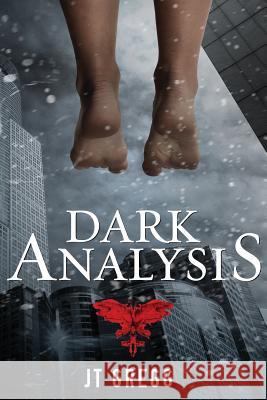Dark Analysis » książka
Dark Analysis
ISBN-13: 9780989561716 / Angielski / Miękka / 2013 / 392 str.
How would you know if your therapist was trying to torture you? To toy with your mind, and cause you so much psychological pain that you would go mad, and have no choice but to kill yourself? Dark Analysis is a novel about a young woman detective who risks her life and sanity to stop a serial killer. Christina Wolfe is a private detective whose usual gigs involve checking out the "faithfulness" of clients' husbands. All she has to do is to presenting herself as a sexy, "available" young woman, and see if they'll take the "bait" and cheat on their wives. It's not fun work, but business is good. But things take a deadly turn when she's hired to investigate the suicide of a young woman. The woman's sister suspects that it wasn't really suicide, that something else, or someone else, was responsible for her death. Chris's investigation leads her to believe that the woman's psychoanalyst, Dr. Nathaniel Bartram, may have encouraged her suicide. What's more, she thinks he may have nudged a number of clients to kill themselves over the years. In short, she may have stumbled onto a serial murderer, but one who is seen as a "hero" by his colleagues. Believing herself to be "onto him" and so immune to anything he might try, she pretends to be seeking an analysis for herself, and enters into treatment with Dr. Bartram. She soon finds herself on the brink of madness, and close to meeting the same fate as his other patients. "Insight can be murder" From the author's notes: "The challenge in writing Dark Analysis was in sticking to the ground rules I set for myself in planning the book. First of all, I had a rule that the antagonist, Dr. Bartram, could never say anything in his treatment of Chris that an actual psychoanalyst wouldn't say to a patient... and yet, in this case, it had to be an absolutely accurate demonstration of how to use those "well-meaning analytic interpretations" to commit murder. Second, I had to write the book in first-person, present tense - so not only do readers sense that the analyst's treatment is life-threatening, but they may identify in a very intimate way with Chris as she is relentlessly pulled to the edge of madness. Leaving readers, perhaps, to wonder: "Could someone do this to me?"











